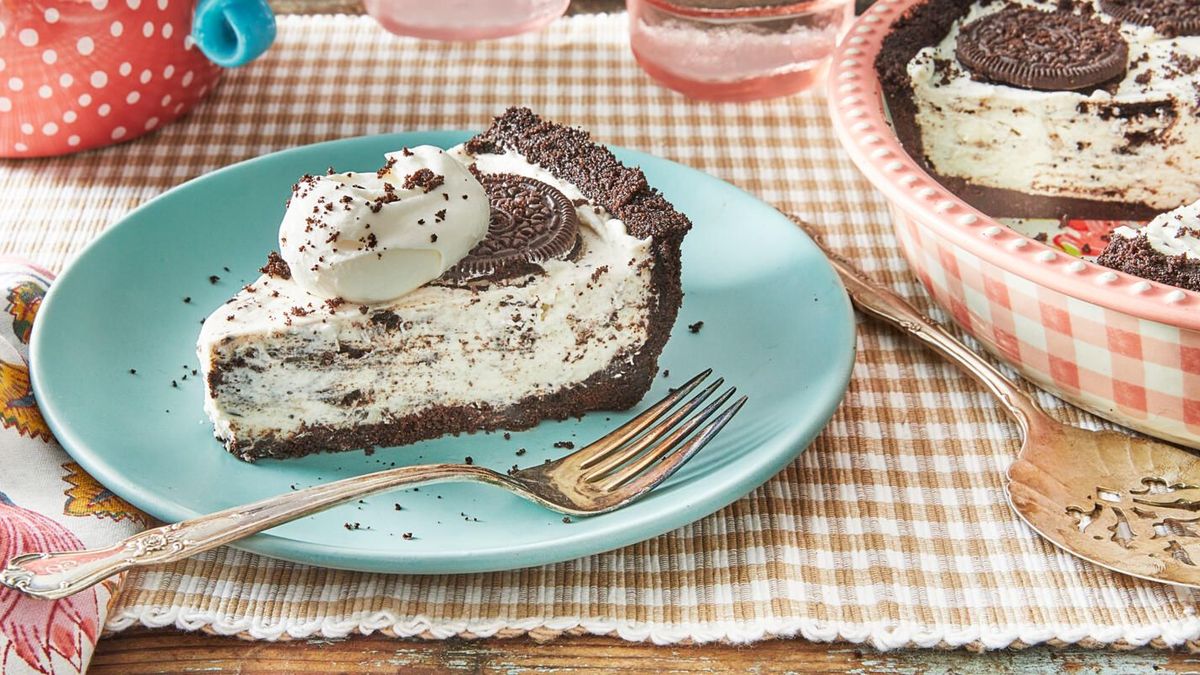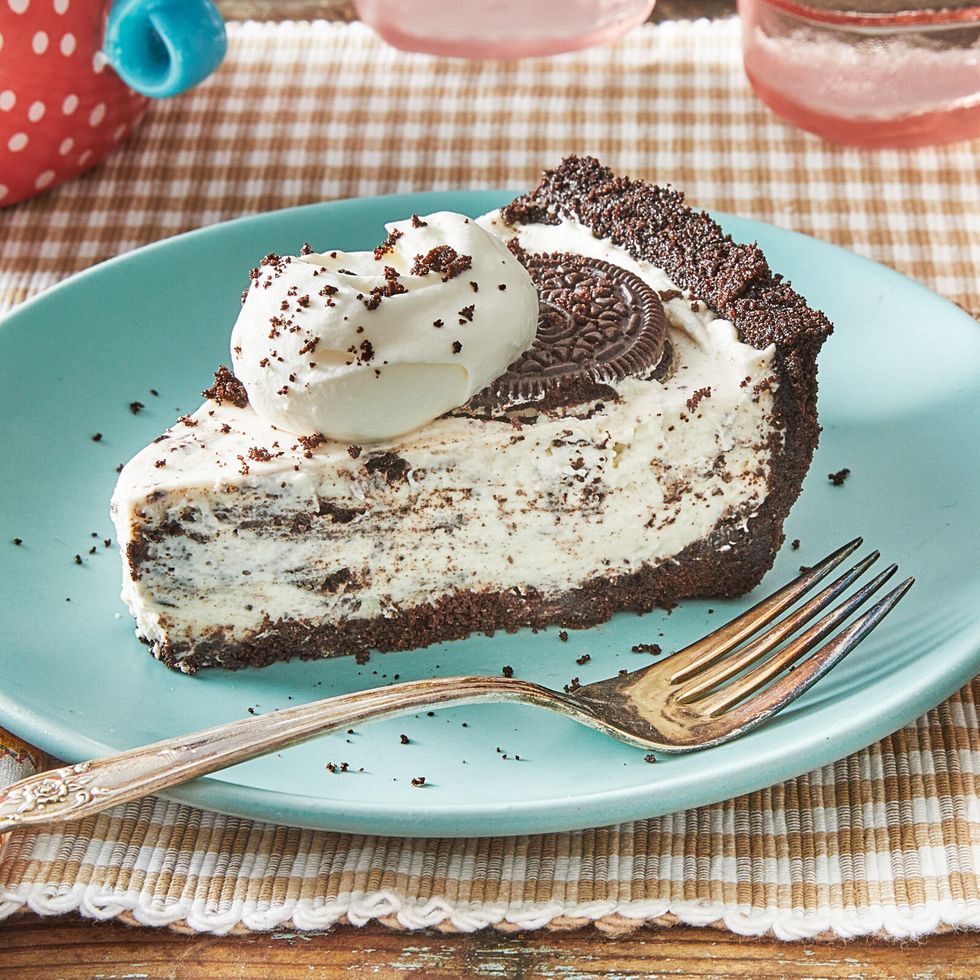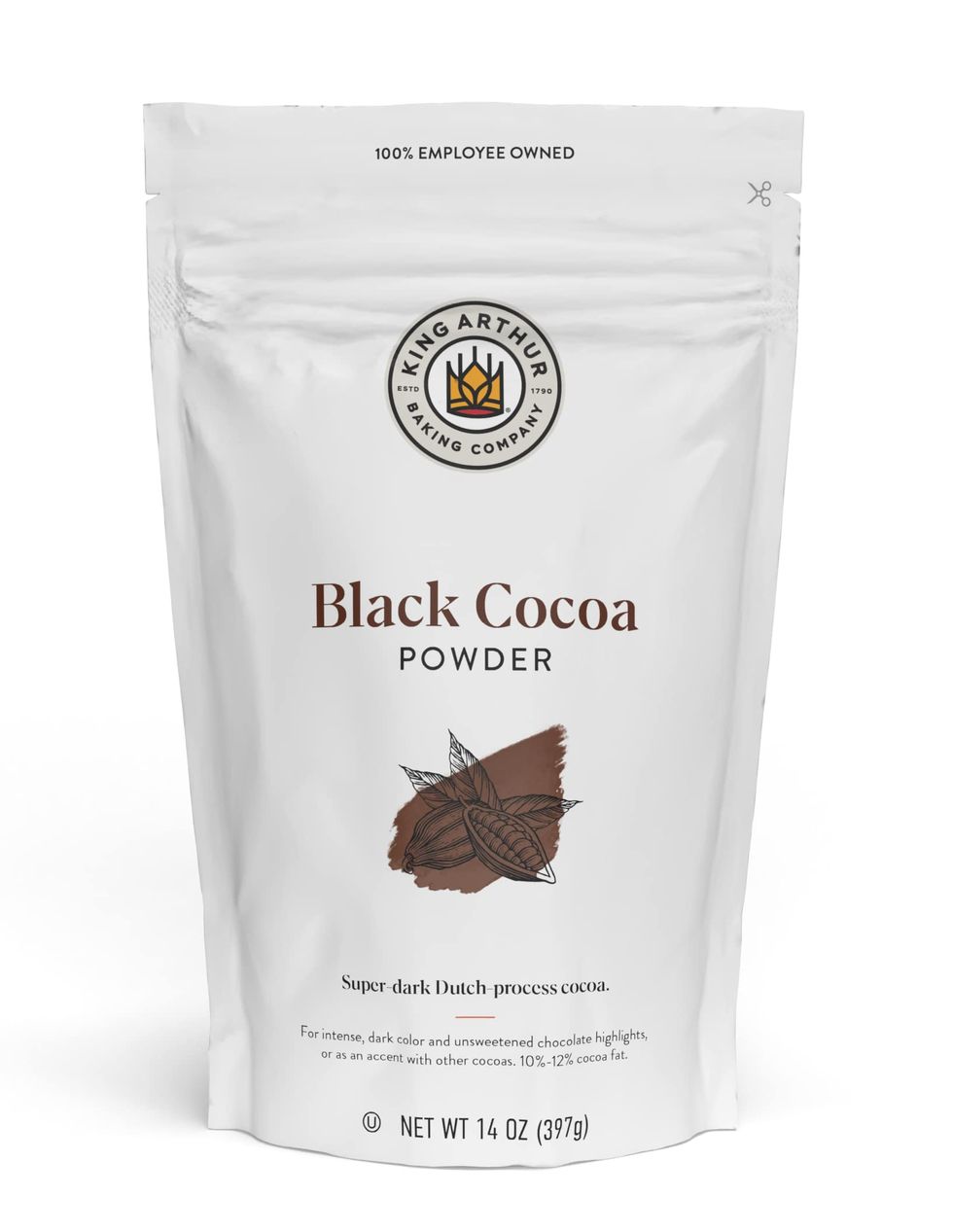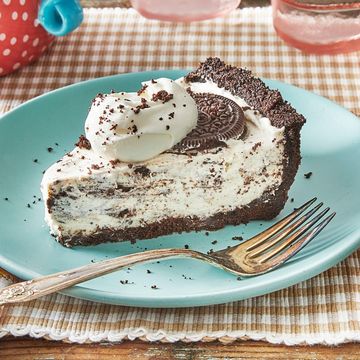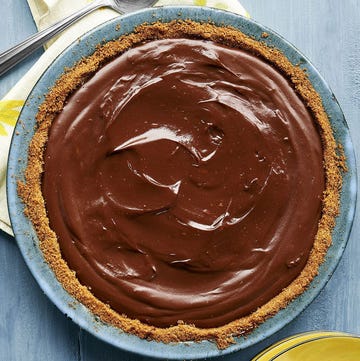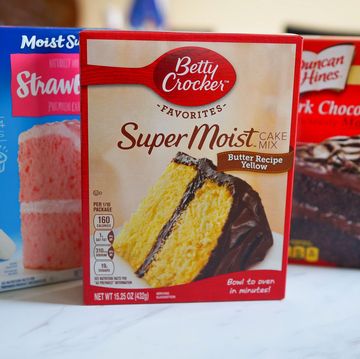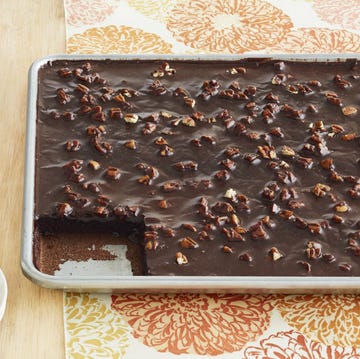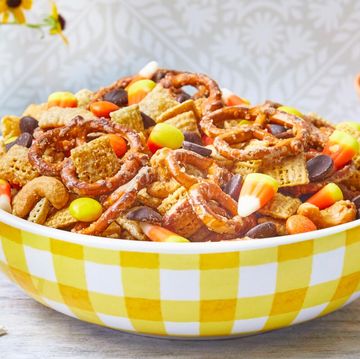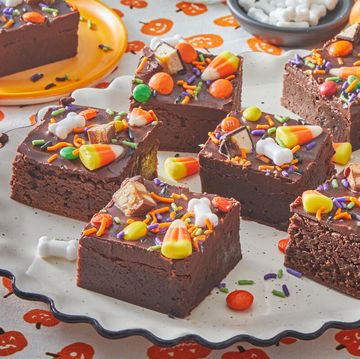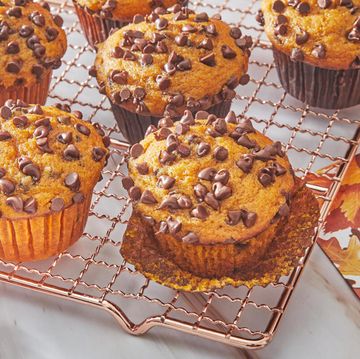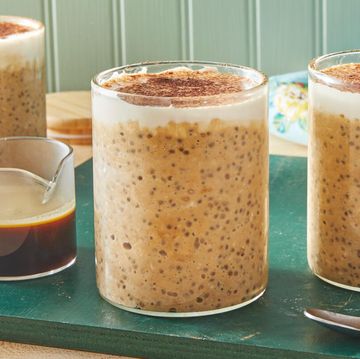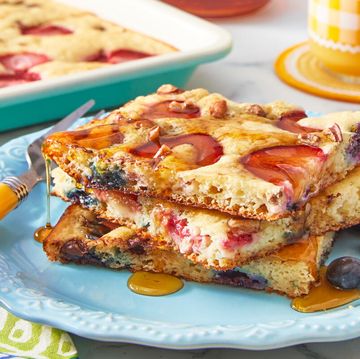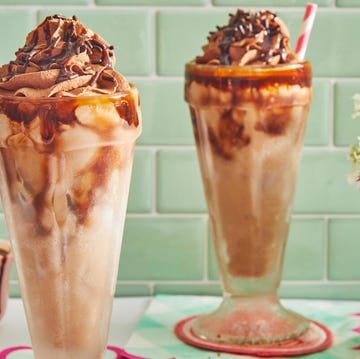Have you ever wondered what gives a classic Oreo cookie its signature black color? What about striking black layer cakes that make especially spooky Halloween desserts? Chocolate desserts are irresistible in any form, from an ultimate chocolate milkshake to Ladd Drummond's favorite silky smooth chocolate pie, and who can forget the Drummond family's go-to birthday sweet? Ree's best-ever chocolate sheet cake is downright decadent. But there's something so delicious about a dark, intensely chocolate treat. If you've ever tried baking Oreo desserts at home, you know that using regular ol' cocoa powder just doesn't do the job. So, what's the secret ingredient in America's favorite cookie? It isn't a bottle of black food coloring like you may suspect.
Introducing... black cocoa powder! There are many different types of cocoa powder you'll spot on the baking aisle, from standard natural cocoa powder and Dutch-process cocoa to a special dark blend of the two. Black cocoa powder is lesser known and harder to find, but it may just be the secret to the best chocolate treats of all time. Find out everything you need to know about this specialty ingredient below.
What is the difference between black cocoa powder and regular cocoa powder?
Regular cocoa powder, often labeled simply as "cocoa" or "unsweetened cocoa powder," is what's known as natural cocoa powder. It's the light brown variety that is most commonly found in grocery stores and used in home baking. Dutch-process cocoa powder can be found in most grocery stores, too. It's a powder that has been alkalized or treated with potassium carbonate to reduce its acidity. The result? Cocoa that is less bitter and what some describe as more chocolaty tasting. Black cocoa powder takes that to the next level, though. It has been even more alkalized and the end product is a cocoa that's dark as night and tastes different, too.
Does black cocoa taste better?
It depends who you ask! Some believe black cocoa powder imparts an unmatched strong chocolate flavor on baked goods. Others claim black cocoa tastes nothing like chocolate at all! Think of it like an Oreo. Do Oreos taste like a chocolate bar you might snack on? No. But are they delicious in their own right? Absolutely! Some recipes could certainly benefit from a bold chocolate kick, but not all of them, so it's important to do your research.
How do you use black cocoa powder?
If you snag a package of black cocoa powder on your next supermarket trip, don't start swapping it for regular cocoa powder in all your favorite baked goods. As with all homemade cakes, brownies, and cookies, there's some science to take into consideration.
Natural cocoa powder contains acid, so when it's combined with baking soda in recipes, it helps act as a leavener. Dutch-process cocoa and black cocoa don't contain acid, so they won't work in these instances. Simply put, if you recipe calls for cocoa powder and baking soda, always reach for natural cocoa powder. Now, if there's only baking powder (and no baking soda) in the recipe, or no leavening agent at all, it's fair game to use any cocoa powder you want—black cocoa included! King Arthur recommends "using black cocoa sparingly in combination with Dutch-process cocoa." Try a 50/50 blend of the two. Black cocoa powder can sometimes affect the texture of baked goods due to its lack of fat, but using a combination of Dutch-process and black cocoa will preserve the texture but also give you that desired deep black color.
